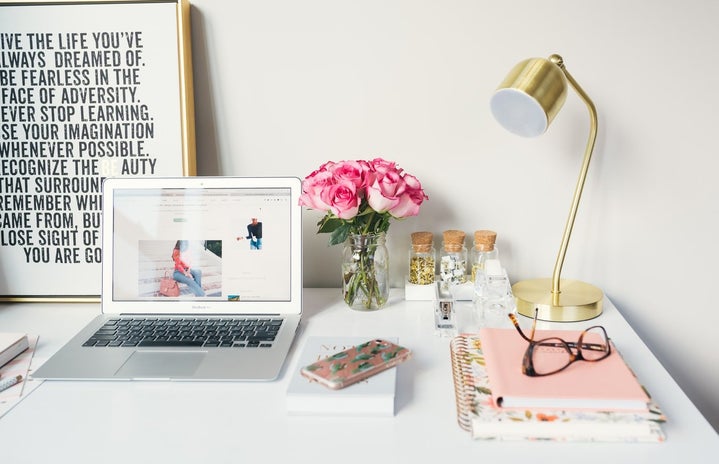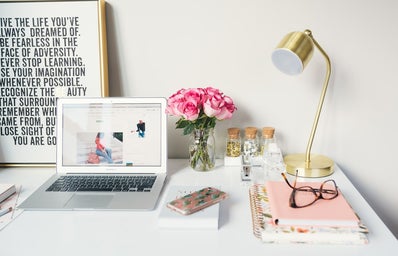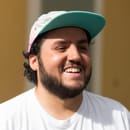With the internet being so easy to access, it has become easier for independent artists to find an audience and let their work be known. As a result, a variety of movements, collectives, and scenes have found a way to pave their path. The independent art scene in Puerto Rico is no different. Recently, many artists from a variety of disciplines have found platforms that have made it easier for them to share their work. In addition, small businesses such as Electroshock in Santurce and Rio Piedras, bars like Off The Wall in Mayaguez, book stores like La Casita Books and Gifts in Aguadilla, Libros AC in Santurce and Libros 787 online, and independent festivals like Feria de Libros Independientes y Alternativos and Tintero: Festival de Cómics y Arte Independiente de Puerto Rico have provided up-and-coming artists a space to display their talents. “Puerto Rican Women Killing It in the Independent Art Scene” is a series of interviews that provides a glimpse at some of the women who have recently gained recognition in the art scene. Though the artists are asked similar questions, some are asked queries surrounding their work, specifically.
Juliana Maité is a filmmaker.
What got you into film?
I started out as a theatre actress. While studying in the Theatre department at Hunter College in New York, I helped out the film students as an actress in their student films. Next semester I took a Film History course and fell in love. After finishing my degree in theatre I took a year off to finish the Film Certificate at UPR Mayaguez, which lead me to continue a graduate degree in fiction film directing.
What themes do you like to explore?
My own fears. No matter what genre, my fears are always present in my films. Be it cockroaches, public humiliation, needles, failing, everyday microaggressions, or the unseen, my fears are central to the stories I tell. Maybe it’s my own way of facing them and healing.
How did you develop your style?
I believe that I’m still in the process of developing my own style. I surround myself with a team of creators who bring out the best in me. We share the same taste in film and storytelling, and we’re constantly feeding each other with content that inspires us. There are certain elements that are definitely part of my style: continuous takes, off-screen main action, and a detailed sound design that is key to the story. Needless to say that the more I film, the more I become more specific with my decisions as a creator, thus refining my style each time.
How has it evolved through the years?
Because technology in film is evolving all the time, there’s always new possibilities to tell stories. I let the world that surrounds me mold my voice, but always being true to myself. I feel like each project is a mirror of who I was when I made it. So as I mature as a human being, so does my style. I used to be closed to the idea of an elaborate soundtrack in my films, and I’ve welcomed non-diegetic music into my stories in the last years. I’m also exploring more drama and less comedy.
What are some of your influences and inspirations?
Playing the violin, painting and dancing from a young age influenced my craft immensely. There is a certain sensibility in conveying emotion through the senses that these disciplines permitted me to explore long before I even thought of film being my main format. I can point out that the works of Lucrecia Martel, Nury Bilge Ceylan, and Kim Ki Duk really shaped who I am as a director. Yet, I can also say that I’ve been influenced by each one of my teachers, my collaborators, and my own experiences. I always say that my best tool as a director is my own life, so I try new things all the time: new people, new places, new adventures; even if it takes me out of my comfort zone.
Is there any other form of art you wish to pursue? If so, what field and why?
Last year I returned to the theater world and directed two plays. I would love to continue to do so, and even try to fuse film and theater in interactive experiences. I continue to dance, and even teach a ballet barre class weekly, among other fitness formats. It’s all about mental, physical and spiritual balance, and it keeps me focused, healthy and in connection to other human beings who are not in the film industry. I would also like to continue playing the violin for myself, as a personal and very passionate challenge.
What do you think about the current state of the arts in Puerto Rico?
Puerto Rico transpires art. In every single art form, there is a Puerto Rican in the island or outside the island that is excelling in it. Artists are directly affected by our colonial status and economic crisis because of the lack of funds. That being said, our will to create is stronger than ever. It might sound old, but suffering and the extremes brings out explosive amounts of creativity as a means to heal and be heard. As a filmmaker, I feel more united than ever to my colleagues. I feel nourished by their success and their growth, and vice versa.
What do you think about the current state of the independent scene in Puerto Rico?
Puerto Rican filmmakers haven’t had a national fund or a film law that creates a sustainable structure which permits us to continuously produce content. At the same time, there are very little possibilities to receive international funds because either we’re not considered Latin America outside of the US or we’re considered foreign language inside the US, leaving us with few very competitive funds. I think it is great that studio produced (Hollywood) movies and series come to film in Puerto Rico and give work to our technicians. But something needs to happen so that a mature national film industry flourishes and reaches its potential.
If a young girl came up to you and said she wanted to be an artist, what would be your advice for her?
I would tell her that discipline is key. It’s not about being a woman in a male driven industry. It’s about being a well-prepared and focused professional.
What is your biggest goal right now?
My biggest goal this year is to film my first feature film: Receta no Incluida. It’s an intimate story that deals with a character with a mental health condition in a post-hurricane Puerto Rico. I also look forward to premiering two projects this year. Ilia is a light comedy about a quirky woman from Jayuya, who has to move back to her hometown after finishing her graduate studies abroad. In a completely different tone, El Paso, our latest short film created for the Puerto Rico European Film Festival ¨Cortadito¨competition, is a dramatic piece that explores the microaggressions that women go through and attempts to start a conversation between all sides involved.
What do you seek to achieve with work?
I want people to feel connected with the stories I tell; connected to themselves, to others, to the world, to our history and to the present. Be it with laughter, tears, awkwardness or beauty, I want them to not feel so alone for a little while.
All of the pictures in this article were provided by Juliana Maité


